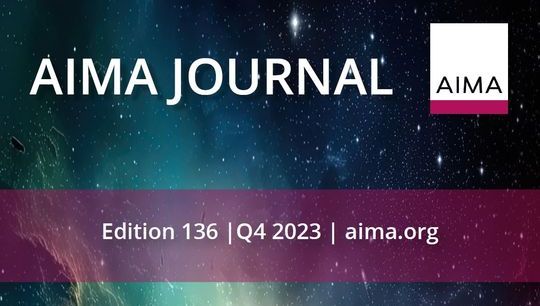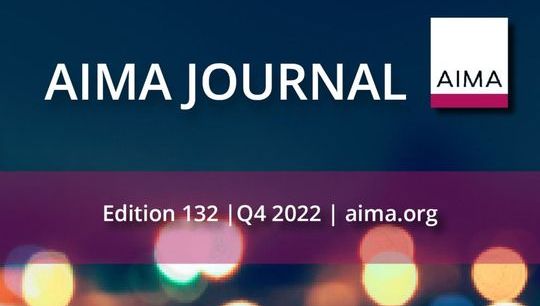Investor Relations in the time of COVID-19
By Jack Inglis, CEO AIMA
Published: 23 April 2020
A significant part of any client-facing role is, just that, being in front of clients and prospects. There is no real replacement to being in the company of someone you’re trying to discuss an opportunity with. For investor relations teams, assessing responses to questions, understanding body language and having to relay complicated messages, are all made easier if they are in the same room as their clients. There is no doubt that the current situation has, quite rightly, stymied the ability to conduct business in the usual way.
The last four to five weeks have seen asset management businesses switch to remote working and, in most instances as confirmed by our manager members, business continuity and disaster recovery plans have been seamlessly activated. Investor relations teams are transposing in-person meetings to on-line conferences or calls, and regular reporting continues, or is being enhanced, to ensure that investors feel connected and informed with what is happening to their money during this unprecedented time.
It should come as no surprise that investor relations teams have never been better placed to deal with this, or any crisis. Many lessons were learned from the 2008 Global Financial Crisis, where some managers failed to communicate effectively with investors, so the imposition of gates or fund suspensions were viewed as indiscriminate. One-to-one telephone conversations, such as those we are hearing being conducted now, may have gone some way to demonstrating that many of those gates or suspensions were mechanisms put in place to protect investors.
The role that investor relations performs during stressful times for a fund has been successfully supported by the changing profile of the senior individuals in those functions. AIMA’s Business Development and Investor Relations Groups is comprised of former fund managers, investment bankers and traders entering this discipline and bringing with it a depth of understanding of markets and financial instruments that was not always demonstrated by investor relations professionals twelve years ago. At a time when portfolio managers are adapting to trading remotely in an uncertain environment, having seasoned and experienced staff managing the investor base is invaluable.
In the last decade, more strategically defined activities have been expected from investor relations as identified in AIMA’s “In Harmony” paper partnerships are formed “as the investor builds more knowledge about the hedge-fund manager, they gain a deeper understanding how the hedge fund will behave”. This can lead to relationships where investors and managers understand each other’s requirements and objectives and this “closer collaboration can help to deliver new products and services”. Those managers who already have been operating in this manner will have established relationships based on trust and transparency which will no doubt offer their clients some confidence during a stressful time.
As with any times of crisis there will emerge winners and the cleverest and most innovative individuals will spot opportunities. Some funds that have been hard closed to new allocations are opening their doors and there have been reports of new products entering the market. We are hearing that the operational due diligence community are converting on-site meetings to video conferences. According to a report issued by Alpine Capital Advisors, 41% of their LP contacts would be willing to invest with a manager without meeting them in person if lockdown extends to beyond three months. Investor relations teams that know their clients will be able to navigate these opportunities with finesse and judgement to avoid any accusations of gaining advantage at the expense of others.
The most experienced and sophisticated investor relations teams will, no doubt, be experiencing some levels of discomfort at not being able to have in-person contact with their clients. These professionals, by their very nature, are hard wired to connect with others. However, whilst not underestimating that level of interaction, it must be remembered that it is just a portion of the overall engagement that feeds into supporting relationships. Conference calls, relaying investor letters and general catchups over emails were already taking place before the COVID-19 lockdown. Business trips and meetings are cancelled but, as in any business environment where people have imagination and tenacity, the work continues.
One of the vital differences between the crisis of 2008 and what we are experiencing now is one of mobility. Having limited opportunity to move around and connect with others is an alien concept to most people and especially to those whose main activity is to make connections with others. The development of investor relations at investment management firms which we have witnessed over the past years and their elevation beyond just “the sales and marketing people” to key strategic influencers within businesses will hopefully pay off during this very difficult, and for many, sad time.








